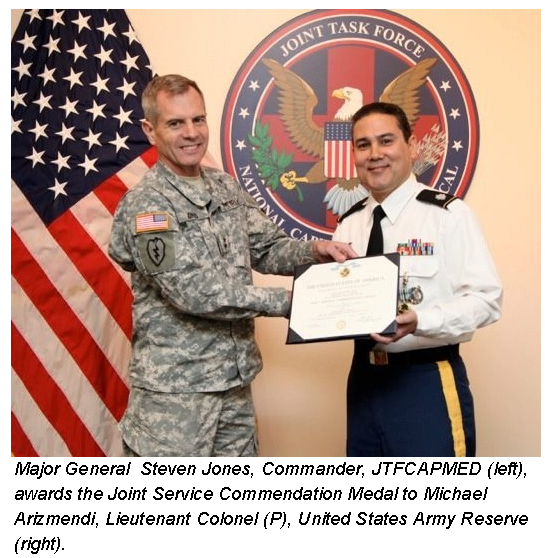What I Learned in Service to Wounded Warriors
 In March, I returned to PSA from a year-long mobilization to serve as the Medical Regulating and Liaison Officer for the Soldier Transfer and Regulating Tracking Center at the Joint Task Force National Capital Region Medical located in the heart of the Walter Reed National Military Medical Center. What a unique opportunity to see what really happens behind the scenes when warriors are injured on the battlefield, and privilege to serve on their behalf.
In March, I returned to PSA from a year-long mobilization to serve as the Medical Regulating and Liaison Officer for the Soldier Transfer and Regulating Tracking Center at the Joint Task Force National Capital Region Medical located in the heart of the Walter Reed National Military Medical Center. What a unique opportunity to see what really happens behind the scenes when warriors are injured on the battlefield, and privilege to serve on their behalf.
Walter Reed is one of three military Centers of Excellence (COE) when it comes to treating warriors with the most complex physical injuries. The physical injuries along with the psychological and emotional trauma provide significant challenges for these warriors, their families and the clinical team. This behind-the-scenes experience is both sobering and inspiring.
What the American public does not get a chance to see is the incredible team of professionals from all service components comprising an extensive array of clinical and mental health specialties; and non-governmental agencies partnered with non-profit organizations to create a strong network of support for family integration and warrior wellness. There is no end to all the support networks whose primary purpose is to serve these warriors and their families. These networks extend to some of the wounded from coalition countries who sustain battle-related injuries and are transported to Walter Reed or our other two COEs for prosthetic-related care and other social service needs. This behind-the-scenes network is second to none and exemplifies the call to serve the American public and the ideals that make America great.
My primary responsibility during my mobilization was to monitor the TRANSCOM Regulating Command and Control Evacuation System and the utilization of the Critical Care Patient Movement Evacuation Vehicles to transport wounded warriors to the appropriate levels of care throughout the country and outside the continental U.S. I had oversight of the patient movement process for approximately 700 wounded, ill, and injured warriors. In this time, I also revised the Secretarial Designee Status directive and provided oversight of 17 foreign national wounded warriors and non-uniformed U.S. patients to access and receive medical care at Walter Reed; where I coordinated with the trauma surgeon, foreign embassy stakeholders and the Office of the Assistant Secretary of Defense for Health Affairs for case management of foreign nationals.
In returning to my post at PSA, I found that my lessons learned apply equally to our work here. This is what I learned: What we do matters. What we don’t do matters. Communication matters. How we do our job matters. Everyone has a function and a role. It is no different no matter where you go. Decisions are made that we have to follow. It is important to know who our customers are. My customers were the Navy, the Marines, the Air force, the Army, federal civilians, contractors, non-DoD entities, and most importantly, my boss and co-workers. It is important to have a variety of experiences to enlarge your body of work, which makes you more adaptable. Adaptability is an important skill set. No matter what organization you affiliate yourself with, the expectations are similar. Most of what we do is routine, but routine leads to competence and competence leads to excellence. Remember, what’s really important is what happens behind the scenes, and if that is where you are, you are in the right place—Represent!

